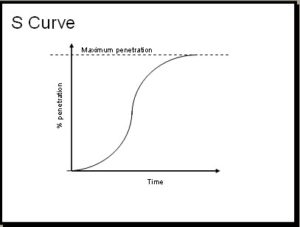You’re at work thinking: I’ve got to get out of here.
Maybe you’re feeling a persistent ache (I’m wasting away here), or the pain is impossible to ignore (this job is killing me!)
It’s that trigger moment when you’ve not only had enough, but also start thinking about what to do next.
But even before the plan emerges, you hesitate. I can’t do anything I want to do without going back to school. I need a degree, and it will take two, three or four years before maybe I start getting what I need to be getting out of my work. (That is, all those things that you’re not getting now.) Will investing more time and money in your education be worth it?
Maybe. But then again, maybe not.
Paying for school used to be the relatively reasonable cost of getting where you wanted to go. No more. Graduates are struggling to find jobs that pay them enough to cover both their loan payments and the most basic necessities. For this reason alone, it may be time to consider whether more education is truly worth it.
Some are also questioning whether the education system is the primary driver of American innovation and wealth creation. Gregory Ferenstein argues that America’s economic success is due to the huge numbers of high performing (that is, “smart”) people in the U.S., a continuous influx of the most talented immigrants, access to the world’s best research facilities, and the largely unfettered economic opportunity all of us enjoy in this country.
Research has consistently shown that on nearly every measure of education (instructional hours, class-size, enrollment, college preparation), what students learn in school does not translate into later life success.
Instead, “[d]etermination, raw intelligence, and creativity are the measures of a successful college student and employee [and] none of those factors are learned in school.”
At this point you may wonder: instead of spending more time and money preparing to do what I want to do, why don’t I just do it?
20 or so students recently did just that, dropping out of top schools to take their business plans directly to market as recipients of a Thiel Fellowship. This highly competitive program pays them $50,000 a year while they work at road-testing their innovative ideas. It also provides them with a network of valuable contacts to help their start-ups to succeed.
These men and women are not “the average person” choosing the lessons of the marketplace over more time in a classroom. With its annual payments, this two-year fellowship is not the classic School of Hard Knocks. But comments made after these young people abandoned their degrees at places like Princeton and M.I.T. speak to those times in all of our lives when experience may be the best teacher.
In recent interviews, the Fellows talked at length about “getting a shot at a better education” by “diving into the real world of science, technology and business.” They had pent-up energy, and couldn’t wait another day to pursue their dreams. “I was antsy to get out into the world and execute on my ideas,” said Eden Full, whose aim was to market a low-cost solar panel. In her real world classroom, she had to learn to count on strangers for help and to become more flexible by finding daily workarounds for unexpected obstacles to get her business off the ground.
Laura Demming was looking to develop medical therapies that target damage from the aging process. She learned that persistence and belief in her ideas were essential to overcoming a string of early failures. The mother of one of the fellows was initially terrified when her son dropped out of school, but ultimately found herself amazed by his trajectory. “This is stuff you don’t learn in a classroom,” she said. “He’s blogging, he’s teaching, he’s writing software.” The father of another student said: “I can’t think of a worse environment than school if you want your kids to learn how to make decisions, manage risk and take responsibility for their choices.”
Wherever you are in your career, there are times when more skills and more knowledge will be essential for what you want to do in your next job. But there are other times when you have enough skills and knowledge already, times when more education is simply a way to postpone what the real world is waiting to teach you.
When you’re sitting at work, hating your job, and thinking about those things that you always wanted to accomplish, consider taking a chance on yourself and your ideas by completing your education in the real world. Your reward could be the empowerment that comes from facing risk, overcoming failure, and gaining practical experience in ways you never imagined.


 The authors use a familiar graph that illustrates how innovative products rapidly penetrate markets to show us how bringing new knowledge or innovation into our jobs can change our individual work experiences just as dramatically. The graph they re-purpose to make their argument is called the S-curve.
The authors use a familiar graph that illustrates how innovative products rapidly penetrate markets to show us how bringing new knowledge or innovation into our jobs can change our individual work experiences just as dramatically. The graph they re-purpose to make their argument is called the S-curve.



